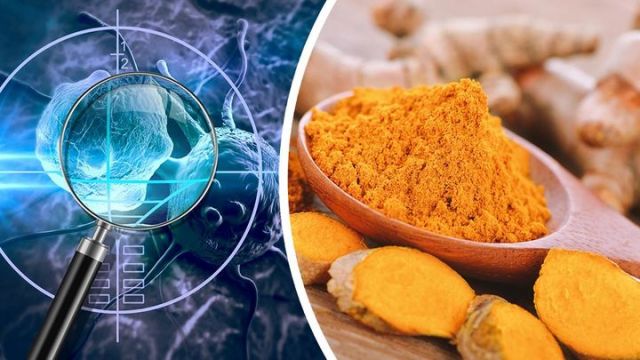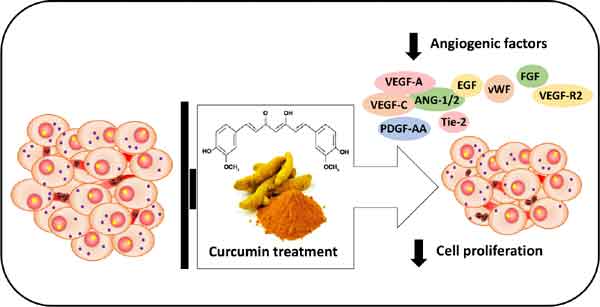The effect of Curcumin on Cancer

Cancer is the second leading cause of death in the United States. Conventional therapies cause widespread systemic toxicity and lead to serious side effects that prohibit their long term use. Additionally, in many circumstances, tumor resistance and recurrence is commonly observed.
The use of cytotoxic chemotherapy drugs to destroy cancer cells remains the standard treatment for patients with metastatic cancer. Cytotoxic drugs inhibit cell division and in this way cause cancer cells to die. The efficacy of these treatments is limited, with recurrence common.

Therefore, there is an urgent need to identify suitable anticancer therapies that are highly precise with minimal side effects. Curcumin is a natural polyphenol molecule derived from the Curcuma longa plant which exhibits anticancer, chemo-preventive, chemo- and radio-sensitization properties. Curcumin’s widespread availability, safety, low cost, and multiple cancer-fighting functions justify its development as a drug for cancer treatment.
Curcumin has been shown to have numerous cytotoxic effects on cancer stem cells (CSCs) yet curcumin has little toxicity against normal stem cells (NSCs).
AntiCancer Research Journal
http://ar.iiarjournals.org/content/35/2/599.full.pdf+html
In order to overcome common major obstacles in conventional cancer therapeutics, scientists are searching for effective treatments within alternative medicine, complementary medicine, and supplements. The National Cancer Institute at the National Institutes of Health (USA) recognizes complementary and alternative medicine (CAM) as prevention/treatment options (http://www.cancer.gov/cancertopics/cam).
Natural herbal compounds or daily food ingredients are widely studied to learn their specific roles in anticancer activities [2, 3]. Unlike first-line cancer therapeutic drugs, herbal and natural compounds are capable of targeting cancer(s) via several pathways and are, therefore, more valuable and reliable in producing superior therapeutic effects in a disease condition (multiple pathogenic factors) [4, 6].
It is believed that herbal medicine brings new hope for cancer prevention due to the safety of herbs and lack of discernible toxicity to normal cells. This alternative approach has been used to treat a wide spectrum of cancers.
December 2019, the FDA is on track to reject fully 95% of the 300+ nominated natural ingredients used by patients as compounded medications, despite a long history of safe use and patient need including curcumin.
With this pressing need to find alternative less toxic and more effective anticancer therapies, what could the FDA’s reasoning be to eliminate access to curcumin for individuals with cancer?
Comments from the public to the FDA closed the beginning of December. However, You can still make your voice heard.
SIGN THE PETITION
RESOURCES
http://ar.iiarjournals.org/content/35/2/599.full.pdf+html
https://www.ncbi.nlm.nih.gov/pmc/articles/PMC3640558/
Search for more published medical journals on curcumin
31,000 results found on PubMed






